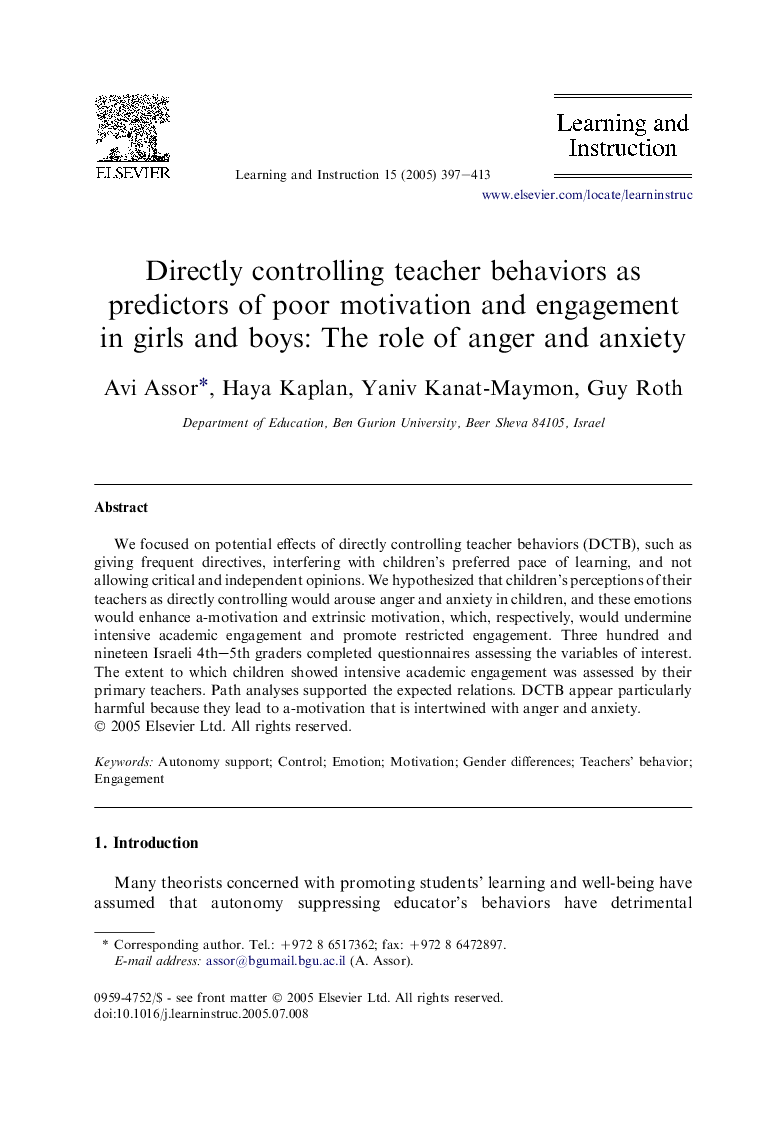| Article ID | Journal | Published Year | Pages | File Type |
|---|---|---|---|---|
| 10315759 | Learning and Instruction | 2005 | 17 Pages |
Abstract
We focused on potential effects of directly controlling teacher behaviors (DCTB), such as giving frequent directives, interfering with children's preferred pace of learning, and not allowing critical and independent opinions. We hypothesized that children's perceptions of their teachers as directly controlling would arouse anger and anxiety in children, and these emotions would enhance a-motivation and extrinsic motivation, which, respectively, would undermine intensive academic engagement and promote restricted engagement. Three hundred and nineteen Israeli 4th-5th graders completed questionnaires assessing the variables of interest. The extent to which children showed intensive academic engagement was assessed by their primary teachers. Path analyses supported the expected relations. DCTB appear particularly harmful because they lead to a-motivation that is intertwined with anger and anxiety.
Related Topics
Social Sciences and Humanities
Psychology
Developmental and Educational Psychology
Authors
Avi Assor, Haya Kaplan, Yaniv Kanat-Maymon, Guy Roth,
